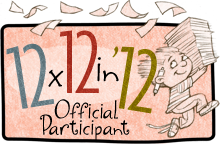I have always been fascinated by stories of survival. During the past week I was stuck at home with the flu, and I had a lot of time to read. After reading one amazing story about the survival of a young Jewish boy during the Holocaust, I decided to read other adult and young adult books about survival during World War II. I wanted a more global perspective, so I searched for books about people and experiences that I had not previously read anything about. I certainly learned a lot about that period in history. What really struck me was the common theme in all four stories. Human dignity is as vital a component to survival as water, food, and shelter.
I’ve been thinking about these stories a lot over the past few days, and particularly, about that common theme. A sense of self-worth is necessary for survival in any decade, during war or peace. Those who strip others of their dignity take so much more. For every bully in the world, however, there are hundreds who choose to lend a helping hand, to say a kind word, and to treat others with the respect they deserve. In the new year, my resolution is to lend a helping hand when I’m in a hurry, to say a kind word when I’m in a terrible mood, and to treat others with respect even when they do not return the courtesy. I want to be a better person in 2012.
Click on each image to read a full description. A Lucky Child by is an extraordinary memoir written by Thomas Buergenthal about his narrow escape from death in Auschwitz and his life thereafter. Unbroken written by Laura Hillenbrand is the story of Louis Zamperini, a young Italian American who survives after his bomber crashes into the ocean only to be captured by the Japanese and held as a prisoner of war. Weedflower by Cynthia Kadahota is a fictional story about a young Japanese girl living in an internment camp in Arizona during World War II. Between Shades of Gray by Ruta Sepetys is a historical fiction novel based on the imprisonment of Lithuanian citizens in Siberia during World War II.
A Lucky Child and Unbroken are particularly difficult to read due to the extreme violence depicted during captivity. These books are particularly notable, however, because the stories continue long after both men are liberated. The stories of life after liberation are part of what makes these two books so exceptional.












My husband received Unbroken from one of his students for Christmas and just finished reading it. He said it was well written but very hard to read. Amazing that Louis is still alive. I have not read any of these books, but I did read Snow Falling On Cedars which was a fictional story about a Japanese internment camp in the US.
Susanna, Unbroken is very hard to read-I almost put it down a few times, but I decided there must be a reason that so many people loved it so much. The end of the story is the reason, I think, along with the series of seemingly impossible events that Louis endures and survives. I gave my dad a copy of the book for Christmas.
I enjoyed reading your post and share your interest in this period of history. I did read Snow Falling on Cedars, but haven’t read the other books you recommended. For years I avoided reading books or watching movies on WWII — made me ill inside. Then two years ago I started reading memoirs, historical fiction and watching movies I had missed. I found myself wanting to learn everything I could. I have an opera friend, Luisa Lang Owen, who wrote her memoirs “A Casualty of War.” She was German by descent and lived in Yugoslavia when they began the ethnic cleansing of Germans in 1945. Luisa was 9 yrs old, and survived two years in a concentration camp — it is a part of history few people are aware of. It’s a bit haunting to think how history repeated itself 50 yrs later in Bosnia and Kosovo.
Thanks for sharing this post and I will add your recommendations to my list. It is important for us to remember, as we look at the genocide that happened in Rwanda and continues to happen in the Sudan. You would think the world would learn from history. But, the atrocities continue.
I agree, Pat. You would think the world would learn from history. Unfortunately I think there must be a lot of politics to blame as well as a sense of isolation. We must stand up for human rights-for the rights of people all over the world. After Thomas Buergenthal was liberated, (A Lucky Child) he emigrated to the US and dedicated his life to international law and the protection of human rights. He felt that as a survivor of the Holocaust he owed it to those who perished to try to improve the lives of others. He is still alive, I believe. I truly admire the survivors who have shared their stories over the years. Your friend Luisa’s memoir is a testament to the atrocities that took place during the Holocaust and a reminder that we must not turn a blind eye.
Great suggestions! I’ll have to check them out. My favorite WWII book is The Book Thief.
Thanks for stopping by, Hannah. The Book Thief is my favorite book of all time!
I have the same fascination as you with survival stories, both fiction and non-fiction — and for all types of survival. Some books along those lines that have left indelible impressions on me are The Kite Runner (I sobbed all the way through it), Snow Flower and the Secret Fan and, one of my favorite books ever, Dorothy Allison’s Bastard Out of Carolina. I will definitely put your recommendations on my list. Thanks!
Renee, I have not read the books that you mentioned, but I own a copy of the Kite Runner. Watched the movie ages ago and have forgotten the story line. I’ll have to pull out that book and find the other titles that you mentioned. Thanks for your recs!